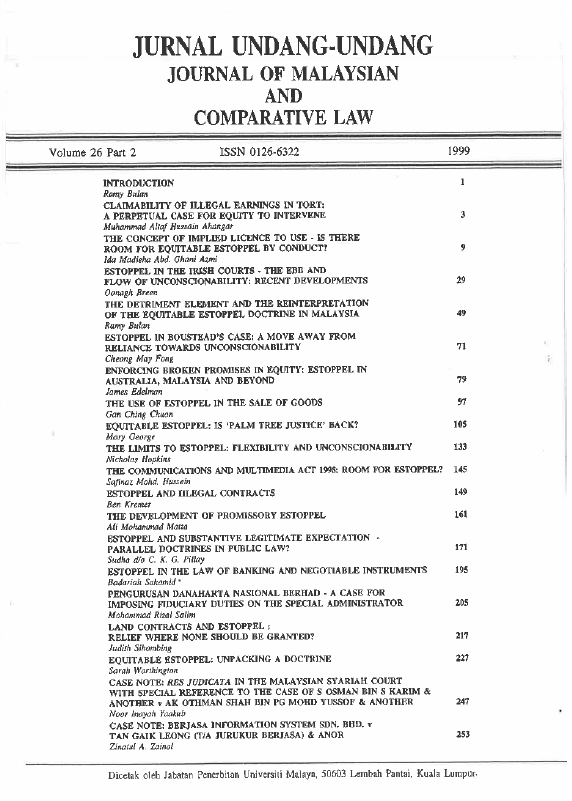Equitable Estoppel
Is ‘Palm Tree Justice’ Back?
Keywords:
Specian model, detriment, estoppel, induced assumptions, Boustead, promissory estoppel, doctrine of estoppel, proprietary estoppel, High Trees, inequitable conduct, unconscionable, equitable estoppelAbstract
The Federal Court in Boustead Trading Sdn Bhd v Arab-Malaysian Merchant Bank Bhd. (the Boustead case) ruled that detriment was not an integral part of the doctrine of equitable estoppel. This paper argues that detriment, a traditional feature of equitable estoppel, is an integral part of the factor of unconscionability in "The Duty to Ensure the Reliability of Induced Assumptions". It is further pointed out that detriment suffered by the promisee is an essential factor that the court ought to take into account when assessing the applicability of the doctrine of equitable estoppel. To this end, this paper examines: (a) the content of "the duty to ensure the reliability of induced assumptions"; and (b) the law on equitable estoppel in Malaysia prior to and with regard to the Federal Court decision in the Boustead case. In conclusion, this paper advocates the Spencian model of a structured and principled approach to the doctrine of equitable estoppel in general and to promissory estoppel in particular. Detriment is an essential feature of the Specian model.
Downloads









